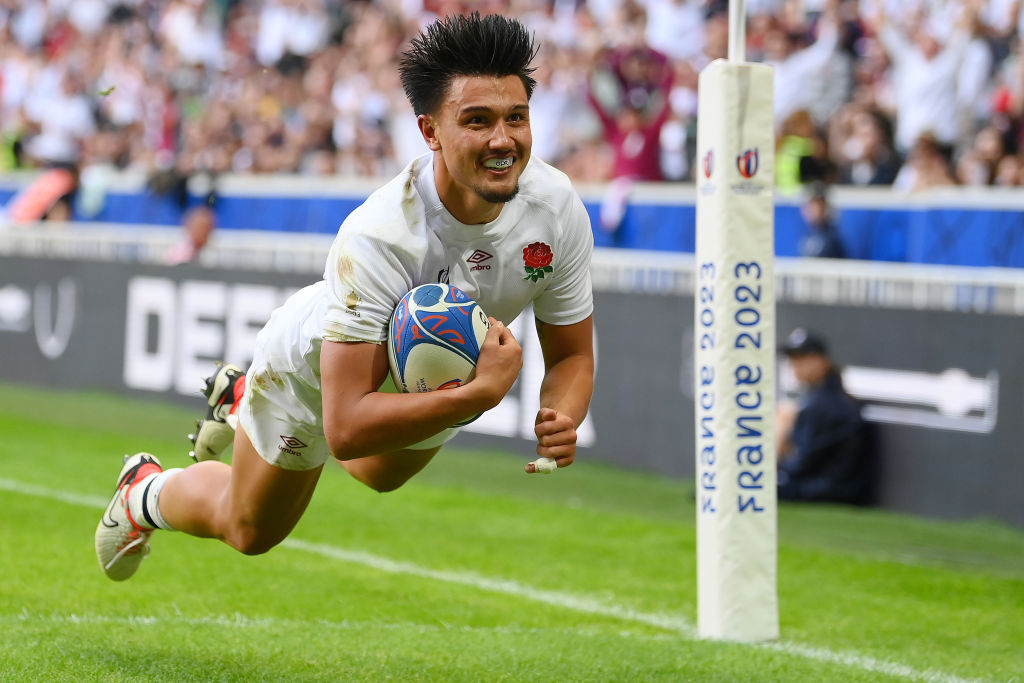Why sponsorship at the 2023 Rugby World Cup offered hope for a troubled sport

It went on for so long that sometimes it felt like there wasn’t a time before the Rugby World Cup. Then, after the usual home nation domino of disappointments, it was suddenly over.
South Africa victorious again, a flurry of big-name retirements and before you could say “Ospreys are playing at home at Harlequins?!” league rugby returned. With club and regional games back, so too are the dark clouds that hover when discussing the game’s future.
It’s not for me to critique the on-pitch tournament, its lengthy format, the 24-team competition we’ll see in 2027, or even the commercial impact of RWC 2023.
Taking the tournament to France, arguably second only to New Zealand in the list of rugby mad major nations, was always a no brainer and 2.5m advanced ticket sales ensured a measure of financial success long before Irish fans were drinking Bordeaux Stadium dry on the opening weekend. Good news at a time when the sport isn’t exactly rolling in cash, as we know only too well in England.
The bigger impact of rugby union’s wider financial challenges is that it can often lead to short-termism. The battle to keep your head above water means only thinking about tomorrow. Not great when the sport needs to appeal to new audiences.
But – whisper it – there were positive signs of longer-term innovation at France 2023, thanks to World Rugby bringing sponsors on board with new ideas that the organisers embraced, and which genuinely benefitted fans and even casual followers.
Rugby union, much like cricket, relied for many years on the same old brand names picking up sponsorship packages and doing the same old things for the same old audiences. In cricket, English blazers knew that if they wanted The Hundred to reach new demographics it had to take an alternative approach to partners, and even though the names weren’t revolutionary, France 2023 felt like it captured this spirit.
Which sponsors starred at the Rugby World Cup?
Whether watching at home or in stadia, you wouldn’t have failed to notice the penalty shot clock brought to you by Tudor, the official tournament “timekeeper”. Benefitting the viewer, building tension, boosting the brand’s awareness, and nearly making history when Owen Farrell’s lack of attention to it almost led to a Tongan win and the biggest ever World Cup shock.
“Digital transformation partner” Capgemini brought big data to the table and also added to the viewing experience. The level of on-screen analytics was a first, created XP (expected points) and conversation during and after games. Innovations which must be considered a plus for a competition which in 2031 will be heading to the home of sports stats – the USA.
Asahi Super Dry, the official beer, presented the official podcast, a series which regularly gained 120k+ views on YouTube thanks to great guests and authentic content which would’ve made even the most hardcore fan forget a certain Irish stout synonymous with the sport, for a few sips at least.
After the success of RWC 2019, having a Japanese brand on board can be seen as a big step in broadening the game’s global appeal. They did some smart pitch-side advertising, too.
To fans of some sports, none of this will sound like earth-shattering stuff, but for a game facing an unprecedented set of challenges off the pitch, it represents positive forward thinking and demonstrates how creative sponsors (and their deeper pockets) can help move the dial more than the administrators themselves.
If the wider game can attract new names and new ideas too, rugby union’s future can be brighter than feared.
Now, does anyone remember a time before the Cricket World Cup?
Matthew Fletcher-Jones is a sports communications consultant.